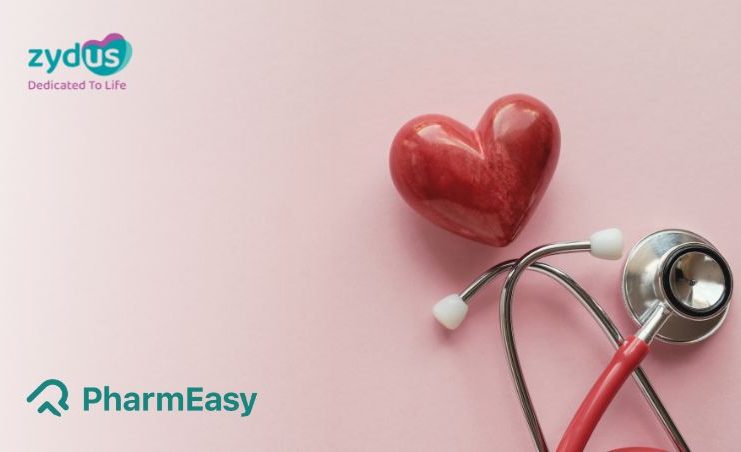High Blood Pressure Vs Low Blood Pressure – Know The Difference!
By Dr. Nikita Toshi +2 more

Get,

to manage your symptom
Get your,


4 Cr+ families
benefitted

OTP sent to 9988776655



You’ve successfully subscribed to receive
doctor-approved tips on
Whatsapp

Get ready to feel your best.

Hi There,
Download the PharmEasy App now!!


Register to Avail the Offer
Send OTPBy continuing, you agree with our Privacy Policy and Terms and Conditions

Hi There,
Sign up on PharmEasy now!!
Trusted by 4 crore+ families

OTP sent to 9988776655



You have unlocked 25% off on medicines




Code: NU25



By Dr. Nikita Toshi +2 more
Table of Contents
According to the guidelines given by the American Heart Association, if the blood pressure falls in one of the below categories then the condition is called Hypertension:

Thus, Hypertension is nothing but high blood pressure and is a serious condition because it makes the heart work harder to pump blood into the body and if not controlled, can result in an increased risk of heart attacks, strokes, and kidney failures.
Similarly, Hypotension is low blood pressure. In this condition, the blood pressure typically falls below a Systolic value of 90 and a Diastolic value of 60. Within prescribed limits, a low blood pressure reading is generally good. However, sometimes this condition can result in dizziness and tiredness. But if there are no adverse symptoms as such then there is nothing to worry about.
While the exact causes of high blood pressure are still unknown, medical practitioners attribute this condition to certain factors namely:
The dropping of blood pressure is a normal scenario. However, certain conditions cause low blood pressure for an extended period such as:
While high blood pressure doesn’t show any severe symptom (which is why it is also called a ‘silent killer’) as such, it is sometimes observed that some people suffering from high blood pressure do show signs of sweating, sleeping problems, and anxiety. However, if the Hypertensive crisis condition is reached, the patient may suffer from nose bleeding and headaches.
Some noticeable symptoms that should raise alarm bells include:
Also Read: Can Dehydration Cause High Blood Pressure? A Research-Backed Examination
While many doctors prescribe medication to deal with high blood pressure, generally, it is best treated by bringing about a change in lifestyle and improving dietary choices.
Some lifestyle adjustments include:
Doctors generally also recommend a ‘DASH – Dietary Approaches to Stop Hypertension diet for high blood pressure patients who adhere to the above lifestyle adjustments.
Also read: Home Remedies for High Blood Pressure
Simple, good to implement practices that prevent low blood pressure which includes :
High blood pressure can rightfully be described as a ‘silent killer’. This is because there are rarely any high blood pressure symptoms but it poses a major threat of heart-related ailments like stroke. Some of the ways in which you can lower your high blood pressure without medications are as follows:
It goes without saying that keeping yourself fit and active with some form of daily exercise has its benefits. As you exercise daily, your heartbeat and breathing rate increase slowly, thus making your heart pump blood easily. This, in turn, puts less pressure on your arteries and helps to lower blood pressure.
Being overweight gives shelter to several diseases which can later turn into serious health issues. As compared to your height, make sure your weight is within what it should be. Losing a few extra pounds will not only help in lowering your blood pressure but will also reduce any other chance of potential medical problems.
Sugar, especially fructose, is known to increases your blood pressure more than salt. Having a low carb, low sugar diet will make you consume more protein and healthy fat, which will, in turn, keep you fuller for longer.
Quitting smoking is good for your overall health, let alone for lowering your blood pressure. Smoking is known to increase (temporarily) your blood pressure and heart rate, but in the longer run, the nicotine present in tobacco causes to increase your blood pressure by damaging blood vessels and narrowing arteries, thus stopping sufficient amounts of blood flow through your heart.
Disclaimer: The information provided here is for educational/awareness purposes only and is not intended to be a substitute for medical treatment by a healthcare professional and should not be relied upon to diagnose or treat any medical condition. The reader should consult a registered medical practitioner to determine the appropriateness of the information and before consuming any medication. PharmEasy does not provide any guarantee or warranty (express or implied) regarding the accuracy, adequacy, completeness, legality, reliability or usefulness of the information; and disclaims any liability arising thereof.
Links and product recommendations in the information provided here are advertisements of third-party products available on the website. PharmEasy does not make any representation on the accuracy or suitability of such products/services. Advertisements do not influence the editorial decisions or content. The information in this blog is subject to change without notice. The authors and administrators reserve the right to modify, add, or remove content without notification. It is your responsibility to review this disclaimer regularly for any changes.

Leave your comment...

View all comments(1)
Thank you for providing such a comprehensive and practical guide. Your blog has become a valuable resource for me, and I’m sure it will help many others on their journey to better manage High cholesterol. Looking forward to more insightful content from you.